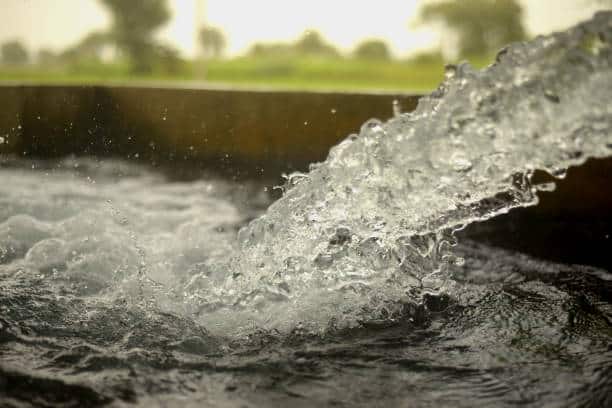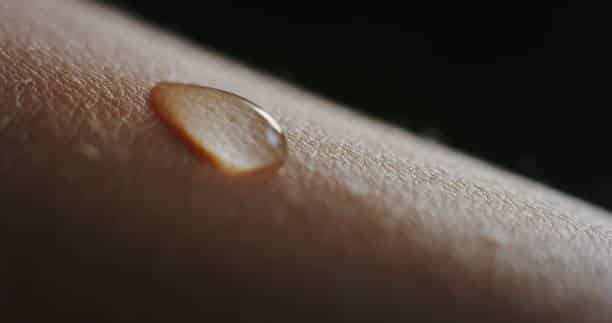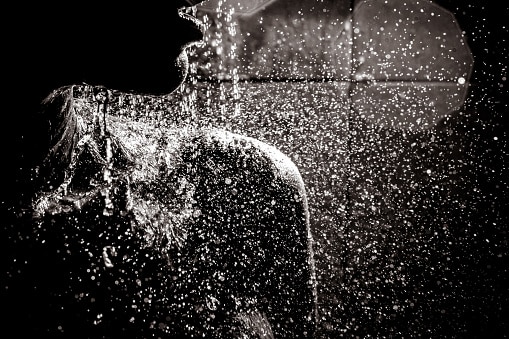Well water is not at all good for your skin, especially if it is chlorinated. Hard water may contain impurities that can cause dryness and allergic reactions to your skin. If you want to know the specific substances found in well water that may damage your skin, as well as some risks it poses to your dermal health, then this article is for you.
Impurities in well water can irritate the skin
Here are some of the impurities found in well water that can be damaging to your largest organ, the skin.

Magnesium and Calcium (Hard minerals)
Minerals that make up hard water are extremely frequent in well water. Soap scum is a mineral deposit that inhibits soap lather and creates a film over the skin, preventing the skin from rehydrating with its own natural oils. Dry skin, rashes, flaky skin, and itchy skin can all result from washing in harsh water.
Moreover, hard water can cause a number of hair problems, including dandruff, frizzy hair, and broken strands. One reason for this is that the natural oils in the hair are being stripped away by harsh minerals.

Bacteria
While bacterial contamination of good casings is extremely uncommon, it is possible if the casing is not sealed properly. It is possible to catch diseases like erythrasma and pediculosis (lice) by using water that has germs in it. Both erythrasma and pediculosis result in unsightly and irritating patches of blue-gray or brown skin.
Pesticides
Both seepages from the soil and runoff from the land can introduce pesticides into the groundwater supply. Typically, you can find them in wells in rural places where farming is prevalent.
Rash, flushing, itching, and redness are all symptoms of exposure to pesticides in municipal water supplies. If pesticides get into an open wound, it can cause serious problems for your skin and other organs (including your kidneys and liver).
Chlorine
Shock chlorination of a well to eliminate bacteria can potentially lead to an overabundance of chlorine in the water supply. When you take a shower or bath in tap water, if the chlorine isn’t eliminated, it can irritate your skin.
Hives and itching are common reactions to chlorine for those with sensitive skin. The symptoms you’re experiencing may be somewhat similar to a slight chemical burn from chlorine.
Arsenic
Since arsenic frequently occurs in the earth’s crust, it is not surprising to find it in groundwater that comes from wells. Arsenic in drinking water has been linked to dry, flaky skin and an increased risk of skin cancer, according to the National Cancer Institute.
How hard water damages your skin
How your home’s water is treated can have a major impact on your skin’s health. It may be as elementary as whether your home has soft or hard water, which is astonishing in and of itself. The consequences of hard water, in particular, are well-documented. Hard water can have several negative effects on your skin, both short-term and long-term.
It can clog your pores, causing breakouts
Just like hard water leaves a film of scum on your bathroom fixtures, it also leaves a film of scum on your skin. Unfortunately, instead of a rich lather, you’re just leaving behind a film of residue that will eventually clog your pores.
Pore blockage is a common cause of acne and other skin problems, and it can also make existing skin disorders worse. Natural oils made by your body are distributed via the skin’s pores. Clogged pores trap these oils, which then cause breakouts.
It accelerates the aging of the skin
Your skin’s premature aging may possibly be due to the hard water you use. Many dermatologists believe that the magnesium and iron found in hard water contribute to the development of free radicals, which are harmful to the skin.
It’s common for this to cause wrinkling and sagging of the skin. Collagen degradation is exacerbated when free radicals are present.
It dries skin
Besides causing irritation, itching, and dryness, the scum that forms in hard water can do the same thing. Hard water’s mineral content can be drying, preventing your body’s natural oils from doing their job of protecting against dryness and keeping skin supple.
Besides the obvious issue of dry skin, hard water has been linked to a wide variety of additional skin diseases like acne and dermatitis.
How to protect skin from hard water contaminants

Any of the following methods for reducing pollutants in well water should be considered for skin protection.
Install a water-softening system
Hard water’s minerals can be loosened by passing the water through a water softener. Soft water’s negative charge makes it less likely to cling to your skin, allowing your body’s natural oils to do their job of keeping you hydrated.
As a result, your skin will feel less itchy after using the softened well water instead of the harsh water you’re used to.
It is the job of water softeners to remove mineral ions like magnesium and calcium from hard water and replace them with sodium ions. This is because, unlike sodium, both of these minerals have a positive electrical charge.
Use whole house water filters
Use whole-home water filters for well water that treat the water throughout the entire home for all-around water quality. Pesticides, arsenic, and other skin-harming pollutants are often removed by the multiple stages of whole-house water filters.
Having it set up at the mains means that all of the water coming into your home will be purified before it even enters the pipes. Because of this, you can take a shower in any of your home’s bathrooms without worrying about water causing skin irritation.
Install Reverse Osmosis Systems
Water purified by reverse osmosis (RO) processes typically removes 98-99% of all pollutants. Such contaminants include insecticides, antibiotic-resistant microorganisms, poliovirus, nitrates, and arsenic.
However, RO is unable to soften water, so you may still want to invest in a water softener. One drawback is that it must be installed at the main entrance before it can service the rest of the restrooms and filtration systems.
Whole-house RO filters are typically more expensive and have a slower water flow rate than other methods of filtration. That being said, you might want to reconsider buying them if you have a really large home.
If you’re trying to filter something other than drinking water, you’ll need something more powerful than a countertop RO filter, which isn’t an option. The filtration stages you require can be built into the system you select, which is an advantage. It can also be used in tandem with a water softener if that’s your preference.
Have an in-shower filtration system
If you want to reduce the amount of chlorine and hardness minerals in your shower water, a showerhead filter is a great investment. Many showerhead filters even supplement the water with beneficial vitamins. In addition to the entire replacement of your showerhead, you may also purchase an inline shower filter, or a bathtub filter.
Frequently asked questions
Is well water okay for your skin?
One of the leading causes of skin irritation is chlorine; therefore, switching to a well water supply might be a relief for those who live in areas where the water is regularly chlorinated.
However, well water isn’t always ideal for your skin. Due to the presence of beneficial minerals, hard water is often used in place of softer water for consumption and preparation purposes.
This is quite damaging to the health of one’s hair and skin. The fatty acids in your shampoo and soap combine with the calcium and magnesium in hard water to generate coagulant compounds. This results in insufficient cleansing and chemical residue being left behind.
Is it bad for your skin to shower in hard water?
Magnesium and calcium are just two of the dissolved minerals that make up hard water. Due to the presence of these minerals, soap is unable to dissolve in the water, leaving behind a film of scum. White soap scum can be seen on the faucets and shower rods in homes with hard water. Clogging of pipes and shower heads due to hard water also reduces water pressure.

Jay
Jay is a health and wellness enthusiast with expertise in water quality and nutrition. As a knowledgeable advocate for holistic well-being, Jay successfully manages Type 2 Diabetes through informed lifestyle choices. Committed to sharing reliable and authoritative insights, Jay combines firsthand experience with a passion for enhancing health."
